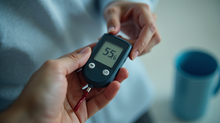Diabetes and Adult Vaccinations
- Maureen Sullivan RN, CDE, CEN
- Mar 15, 2019
- 2 min read
Each year, thousands of people are hospitalized for illnesses that could be prevented through vaccinations. Persons with diabetes may have a harder time fighting infections and suffer more complications from these illnesses. Vaccines are an important, safe way to reduce your odds of a potentially life-threatening infection; thus, speak to your health care provider regarding the following routine vaccine options. For a complete list of recommended adult vaccinations, check out this website: https://www.cdc.gov/vaccines/schedules/. The following list showcases some high priority vaccinations to discuss with your healthcare providers:
Influenza vaccine- this vaccine will reduce your risk of getting the seasonal flu. Persons with diabetes who have been diagnosed with the flu frequently experience very erratic (dangerously high) blood sugar levels that lead to complications. Despite what you hear and read about the varying “success rates” of the flu vaccine, you need a dose every fall (or winter) for your protection and for the protection of others around you.
Hepatitis B vaccine-this vaccine will reduce your risk of contracting Hepatitis B. People with diabetes have been shown to have higher rates of Hepatitis B than the rest of the population. Outbreaks of Hepatitis B associated with blood glucose monitoring procedures (blood sugar meters, finger stick devices, and other equipment such as insulin pens) have happened among people with diabetes. For these reasons, all adults with diabetes who are younger than 60 and have never received or completed a series of HepB vaccine, should get vaccinated now.
Pneumococcal vaccine-this vaccine will help protect against many serious pneumococcal diseases, such as pneumonia (lung infections), bacteremia (blood infections), and meningitis (infection of the lining of the brain and spinal cord). One dose of pneumococcal vaccine before the age of 65 and two more doses after is recommended.
Zoster vaccine- this vaccine is given to protect against shingles if you are 50 years or older. Almost 1 in 3 people in the U.S. will develop shingles (also known as zoster and herpes zoster) at some point in their lifetime. This painful rash of blisters comes with the risk for long-lasting pain known as postherpetic neuralgia, a risk that increases with age.
TDAP vaccine- this vaccine is given to protect against tetanus, diphtheria, and pertussis (whooping cough). If you have not received a dose of Tdap during your lifetime, you need to get a Tdap shot now (the adult whooping cough vaccine).
Routine vaccinations play an essential role in good health!



































Comments